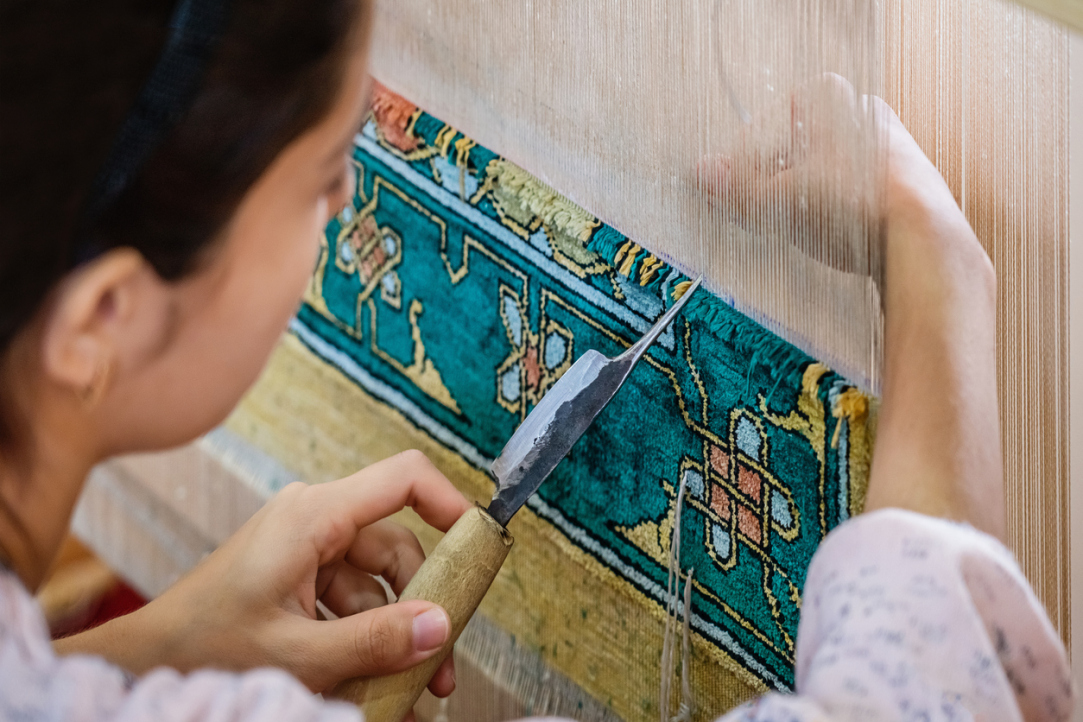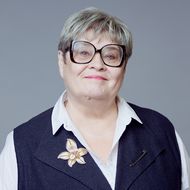‘The Development of Creative Industries Has Become a Priority for Both Russia and Uzbekistan’

The Tourism Development Institute under the Committee for Tourism of the Republic of Uzbekistan and HSE University have signed a cooperation agreement aimed at establishing and developing academic, cultural, and other partnerships in the fields of education and tourism. The initiative for signing the agreement came from the Institute for Creative Industries Development at the HSE Faculty of Creative Industries.
The agreement envisages the creation of educational programmes and the launch of joint projects.
International cooperation in education plays a key role in the development of human capital, the strengthening of scientific potential, and the formation of global academic networks. Partnerships between leading educational institutions provide access to advanced teaching methods, research practices, and double degree programmes, all of which contribute to the training of highly qualified specialists capable of meeting the modern labour market demands.
Such cooperation not only enriches the academic environment but also promotes intercultural dialogue, the development of innovative educational models, and the strengthening of countries’ positions in the international educational landscape.
The first joint initiative launched under the partnership was the international youth competition ‘The Culture of the Republic of Uzbekistan in Contemporary Design,’ organised in collaboration with the HSE Art & Design School, the DAFES Association, the Creative City platform, and supported by the Committee for Tourism of the Republic of Uzbekistan. The committee awarded a prize fund of 10 million, 7 million, and 5 million Uzbekistani soms to the first, second, and third prize winners, respectively.
The aim of the competition is to gather contemporary design solutions based on the intangible cultural heritage of Uzbekistan, emphasise its global significance, and highlight its role in enhancing the country’s tourism potential.

Tatyana Abankina, Academic Supervisor of the HSE Institute of Creative Industries Development, Candidate of Sciences in Economics
‘The development of creative industries has become a priority for both Russia and the Republic of Uzbekistan. Creative individuals are the backbone of the creative economy. A meeting in Vladivostok between colleagues from the Institute for Creative Industries at HSE University and representatives from Uzbekistan, held as part of the Russia–Uzbekistan Educational Forum ‘Education in Creative Industries: Shaping the Economy of the Future,’ laid the groundwork for cooperation in areas such as staff training, joint educational programmes, and collaborative projects in creative fields. The educational and research resources presented by the Institute for Creative Industries Development attracted great interest from our Uzbekistani colleagues at the Tourism Development Institute. In particular, the Creative City platform will serve as a hub for bringing together educational initiatives, creative projects, and individuals. The Genius of Place digital competition platform and the online/offline programme in Management in Creative Industries were also met with enthusiasm. Representatives of the ministry of Uzbekistan expressed interest in HSE University’s methodology and practical approach to assessing the creative potential of Russian regions. The establishment of direct contacts and participation in the international conference hosted by HSE University-St Petersburg provided an opportunity to define specific areas of collaboration and led to the drafting of a Cooperation Agreement between HSE University and the Tourism Development Institute of the Republic of Uzbekistan in the fields of education and science.’

Valery Gordin, Head of the Laboratory for Management in Culture and Tourism at HSE University-St Petersburg
‘The Laboratory for Management in Culture and Tourism at HSE University-St Petersburg has already established ties with the institute. Our Uzbekistani colleagues visited St Petersburg to participate in a seminar on cultural heritage, and our experts gave presentations at the VIII International Forum of Guides, hosted by the institute, focusing on new challenges and pathways for tourism development. We see the most promising areas of future collaboration with the Tourism Development Institute in research on the role of museums in the creation of tourism products in both Uzbekistan and Russia, as well as in the establishment of a professional development system for museum workers and tourism professionals. This will involve creating mechanisms for collaboration between these two sectors.’

Natalia Logutova, Deputy Director of the HSE Institute for Creative Industries Development
‘Enhancing the tourist appeal of regions through cultural heritage, traditional crafts and technologies, as well as developing local brands are major themes that are becoming the focus of research, analysis, and educational content for students across all programmes at the Institute for Creative Industries Development and HSE Art & Design School. Together, we have launched the Creative City platform—a community of professionals in the creative field, a kind of creative map originally built on student projects. Since then, it has expanded beyond HSE and even internationally, uniting projects from various regions and countries. This platform functions as a permanent competition system, gathering the best creative practices for working with local themes and attracting an international expert community. We hope our collaboration with the Tourist Development Institute of the Republic of Uzbekistan will lead to a significant expansion of the range and types of projects, thanks to both students participating in our joint programmes and initiatives exploring the cultural heritage of both countries. With the exchange of experiences, joint research, competitions, and exhibitions, we are looking forward to a long-term and fruitful cooperation.’
Elena Golysheva, Director of the Tourist Development Institute under the Committee for Tourism of the Republic of Uzbekistan, PhD in Economics, Senior Research Fellow
‘Undoubtedly, the signing of the cooperation agreement in education and research—initiated by the HSE Institute for Creative Industries Development—will contribute to the development of creative industries, the establishment of joint educational programmes, and the support of new youth initiatives.
This will help accelerate the promotion of cultural heritage, foster the implementation of innovative ideas, and enable the exchange of valuable experiences. Overall, this partnership is focused squarely on long-term outcomes and the mutual enrichment of academic and professional environments.
It is also essential that the agreement will contribute to training the specialists needed in creative industries. I would like to take this opportunity to once again express our gratitude to our Russian colleagues for their support and assistance in many areas. I have every confidence that our future collaboration will have a positive effect on the continued development of the tourism and creative infrastructure in both Russia and Uzbekistan.’
Alim Mukhitdinov, Head of the Department for Scientific and Innovative Projects at the Tourism Development Institute of the Republic of Uzbekistan
‘Our cooperation with HSE University opens up new horizons for joint research and education in the fields of tourism and creative industries. Signing this agreement between our two institutions is an important step towards the creation of an integrated scientific and educational platform capable of offering a modern perspective on tourism development—one that takes into account cultural, technological, and creative trends.
The Department for Scientific and Innovative Projects at the Tourism Development Institute sees particular value in the exchange of academic approaches, the implementation of joint research, the launch of educational initiatives and youth competitions such as ‘The Culture of the Republic of Uzbekistan in Contemporary Design.’ These projects help to reveal our country’s unique cultural potential and establish new standards in training professionals for the tourism sector.
We hope that this growing cooperation will serve as a strong foundation for a sustainable partnership focused on generating new knowledge, developing human capital, and promoting Uzbekistan’s cultural heritage on the international stage.’
See also:
HSE Scientists Optimise Training of Generative Flow Networks
Researchers at the HSE Faculty of Computer Science have optimised the training method for generative flow neural networks to handle unstructured tasks, which could make the search for new drugs more efficient. The results of their work were presented at ICLR 2025, one of the world’s leading conferences on machine learning. The paper is available at Arxiv.org.
Neural Network Trained to Predict Crises in Russian Stock Market
Economists from HSE University have developed a neural network model that can predict the onset of a short-term stock market crisis with over 83% accuracy, one day in advance. The model performs well even on complex, imbalanced data and incorporates not only economic indicators but also investor sentiment. The paper by Tamara Teplova, Maksim Fayzulin, and Aleksei Kurkin from the Centre for Financial Research and Data Analytics at the HSE Faculty of Economic Sciences has been published in Socio-Economic Planning Sciences.
Larger Groups of Students Use AI More Effectively in Learning
Researchers at the Institute of Education and the Faculty of Economic Sciences at HSE University have studied what factors determine the success of student group projects when they are completed with the help of artificial intelligence (AI). Their findings suggest that, in addition to the knowledge level of the team members, the size of the group also plays a significant role—the larger it is, the more efficient the process becomes. The study was published in Innovations in Education and Teaching International.
Advancing Personalised Therapy for More Effective Cancer Treatment
Researchers from the International Laboratory of Microphysiological Systems at HSE University's Faculty of Biology and Biotechnology are developing methods to reduce tumour cell resistance to drugs and to create more effective, personalised cancer treatments. In this interview with the HSE News Service, Diana Maltseva, Head of the Laboratory, talks about their work.
Master’s Students of HSE, University of Campinas, and Tsinghua University Publish Joint Student Research Collection
Master’s students of the HSE ISSEK programme ‘Science, Technology and Innovation Management and Policy’ have released a joint research collection with the University of Campinas (Brazil) and Tsinghua University (China) titled ‘Being Innovative or Being on the Safe Side—Managing the Risk of Failure.’ The authors explore how organisations perceive risks and embrace innovation within different cultural contexts.
‘A Turn Away from Stereotypes’: Moscow Hosts ‘Researching the Deaf Community’ Conference
On October 17–19, 2025, the third annual interdisciplinary conference ‘Researching the Deaf Community 2025: on the Periphery of Attention’ took place at GES-2 House of Culture in Moscow. The event was organised with the participation of the HSE International Laboratory for Social Integration Research. HSE University Vice Rector Irina Martusevich addressed attendees at the opening ceremony.
Exploring the Mind: HSE Scientists Discuss Cognitive Technologies of the Future
Why we make irrational decisions, how the brain responds to fakes, and whether neural networks are capable of thinking—these were the topics discussed by early-career scientists of HSE University during the NAUKA 0+ science festival. The event brought together students and experts from various fields, united by a common goal—to deepen their understanding of the human brain and cognitive technologies.
HSE Researchers Assess Creative Industry Losses from Use of GenAI
Speaking at the IPQuorum.Music forum on October 15, Leonid Gokhberg, HSE First Vice Rector, and Daniil Kudrin, an expert at the Centre for Industry and Corporate Projects of HSE ISSEK, presented the findings of the first study in Russia on the economic impact of GenAI on creative professions. The analysis shows that creators’ potential losses could reach one trillion roubles by 2030.
International Dialogue on Urban Development: Dynamic Urbanism and Green Infrastructure
In September 2025, the HSE Faculty of Urban and Regional Development (FURD) hosted a delegation of leading scholars and urban development experts from China. Two seminars were held at the Shukhov Lab with the participation of Chinese colleagues: the first focused on green infrastructure, while the second explored the theme of dynamic urbanism. In addition, a meeting between the Chinese delegation and representatives of FURD took place at the university’s main building on Pokrovsky Bulvar. The participants discussed opportunities for expanding cooperation between universities and research centres.
HSE Tops the Ranking of Universities with the Best Employer Reputation
On October 16, 2025, Forbes Education published its list of the top 20 Russian universities with the best employer reputation in 2025. The ranking was based on a survey of leading Russian employers, who named the higher education institutions whose graduates they consider the most well-prepared and are most inclined to hire. HSE University took first place in the ranking.


